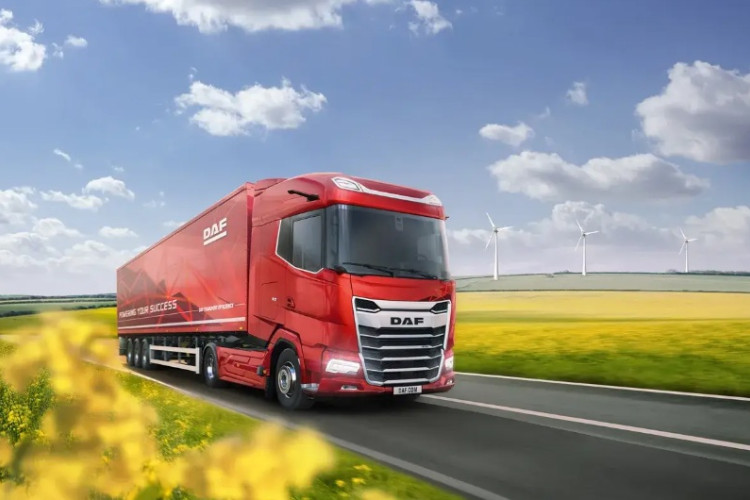DAF Trucks has announced that its New Generation XF, XG and XG+ models are now available with a specially developed PACCAR MX-13 engine compatible with B100 biodiesel, offering transport companies another route to reduce CO₂ emissions without switching to electric vehicles.
The B100-compatible version of the 355 kW (480 hp) MX-13 engine has been equipped with tailored software to account for the lower calorific value of biodiesel compared to conventional diesel. It is available for both tractors and rigids, making the option accessible to a wide range of operators.
B100 biodiesel – also referred to as FAME (Fatty Acid Methyl Esters) or RME (Rapeseed Methyl Esters) – is produced entirely from renewable vegetable oils and fats. According to DAF, the fuel can reduce well-to-wheel CO₂ emissions by up to 90% compared to fossil diesel, placing it in the same range as HVO (Hydrotreated Vegetable Oil).
“DAF trucks with combustion engines have been HVO-compatible for some time, but B100 is more readily available in some regions,” explained Jeroen van den Oetelaar, Chief Engineer at DAF Trucks. “With this addition, we are offering another way for hauliers to reduce their ecological footprint without compromising on vehicle reliability.”
The move is likely to be welcomed by fleet operators in countries such as France, Germany and Sweden, where tax incentives and supply infrastructure have made B100 a more viable option. It also provides an alternative for hauliers looking to meet growing sustainability requirements without investing in charging infrastructure or adapting route planning around electric range limitations.
While DAF has not disclosed any specific pricing or fuel consumption data for the B100-compatible variant, the company emphasises that the engine has been optimised specifically for the fuel type and meets the brand’s standard performance and durability expectations.






